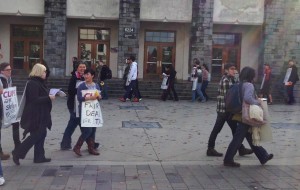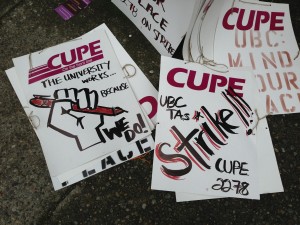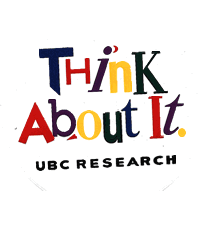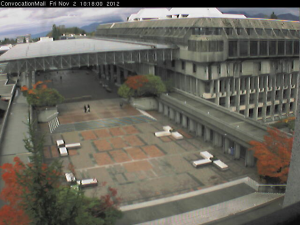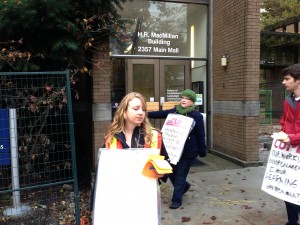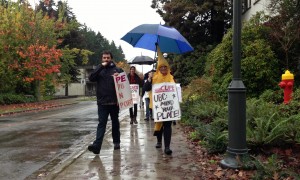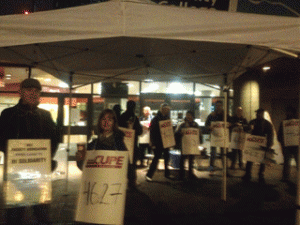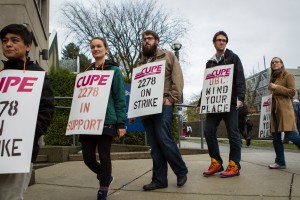With a day of general strikes, Italy, Portugal, and Spain joined Greece in anti-austerity protests and blockades. For the last moth, the theme in Greece has been “enough is enough” as the worst capitalist crisis in Europe since the Great Depression fuels uncertainties and moves students and workers toward unity. In May, students launched mass protests across Spain while faculty members followed with their own strikes. The financial crisis is the tip of the iceberg. For example Spain, with an unemployment rate 25.8% and a youth jobless rate of 54.2%, faces the deepest budget cuts on record with cuts to spending on health, education and benefits, and increases in sales taxes and levies on income.
Links
Follow @icesubc
ICES
Workplace
Critical Education
New Proposals
AAUP
CAUT
CUFA BC
COCAL International
Chicago COCAL
Adjunct Nation
AFT Higher Ed
Rouge Forum
Freire Project
Critical Pedagogy (McLaren)
In Defence of Marxism
American Rights at Work
AERA Teachers' Work/Teacher Unions SIG
Association for Union Democracy
Unionist
Bread and Roses
Bread and Puppet
Campaign for Labor Rights
Coalition of Graduate Employee Unions
Coalition of Labor Union Women
Coalition on the Academic Workforce
Communicate or Die
Community Labor News
Free Exchange on Campus
How The University Works
Jobs With Justice
LearningWork.ca
LabourAgain
Labor Against the War
Labor Heritage Foundation
LaborNet
Union Book
Labor Notes
LabourStart
Scipes' Contemporary Labor Bibliography
Teacher Solidarity
Theory in Action: Journal of TSI
Transformative Studies Institute
University Politics
University World News
UWatch.ca
Workers Independent News Service
Working TV
Your Education MattersCategories
- Academic freedom (435)
- Academic Labor (23)
- Academics (318)
- Accountability (222)
- Adjuncts & Sessionals (24)
- Administration (772)
- Advocacy (157)
- Athletics (12)
- BC Education (132)
- Black Lives Matter (2)
- Budgets (5)
- Budgets & Funding (261)
- Bullying & Mobbing (8)
- Campaigns & Contracts (223)
- Campus Life (75)
- Censorship (13)
- CFPs (55)
- Chan Case (15)
- Commentary (114)
- Conferences (26)
- Contingent labor (185)
- Corporate University (341)
- Corruption (51)
- Courses (2)
- Crime (19)
- Critical University Studies (37)
- Culture (6)
- Diversity (166)
- Economics (88)
- Employment rights (111)
- Environment (12)
- Equity (308)
- Ethics (186)
- Events (23)
- Faculty (424)
- For Profit Universities (3)
- Free speech (264)
- Governance (174)
- Government (401)
- Human Rights (73)
- Idle No More (41)
- Institute for Critical Education Studies (12)
- Intellectual property (17)
- International (312)
- Job market (47)
- Just kidding (5)
- Just Kidding (not) (3)
- K-12 issues (131)
- Labor Programs (5)
- Legal issues (433)
- Maces (5)
- Media (26)
- mismanagement (1)
- Occupy (5)
- Open access (54)
- Organizing (212)
- Patronage (4)
- Philanthropy (3)
- Politics (87)
- Protests (430)
- Publications (54)
- Race (12)
- Regalia (4)
- Religion (2)
- Research (19)
- Safety & Security (24)
- Salary/Economic Benefits (268)
- Scandals (22)
- Sexual Discrimination, Harassment, Assault (2)
- Shared governance (23)
- Solidarity (178)
- Staff (5)
- Strikes (240)
- Strikes & Labor Disputes (779)
- Stuart Hall (1)
- Student Movement (154)
- Students (635)
- Teach-ins (2)
- Technology (23)
- Tenure & Promotion (168)
- UBC Dean Search (1)
- Uncategorized (392)
- Unions (483)
- Violence (23)
- Working conditions (338)
Bookmark & Share
Workplace CFPs
Top Labor News
Recent Comments
- Karen Connelly on Eve Seguin: Academic mobbing, or how to become campus tormentors #ubcnews #caut_acppu #ubceduc #highered
- anon on #UBC Dean time to come #ubcclean #ubc100 #ubcnews #bced #ubcgss
- Stephen Petrina on @ubcnews time to apologize to Gupta & #UBC members #ubc100 #ubcclean #ubcnews #bced
- Peter on @ubcnews time to apologize to Gupta & #UBC members #ubc100 #ubcclean #ubcnews #bced
- Peter on @ubcnews time to apologize to Gupta & #UBC members #ubc100 #ubcclean #ubcnews #bced
- Indio on #UBC admin exuberance to blame for Kinesiology controversy over $$ and buildings #ubc100 #ubcnews @ubcinsiders #ubysseynews #bced
- Stephen Petrina on Shared governance hits rock bottom at #UBC #ubc100 #ubcnews #ubysseynews #highered #bced #ubcgss
- Stephen Petrina on #UBC appoints VP communications in thick of PR disaster #ubc100 #ubcnews #caut #bced
- frank on #UBC appoints VP communications in thick of PR disaster #ubc100 #ubcnews #caut #bced
- E Wayne Ross on Pres Gupta returning to #UBC on Tuesday, Binky says #ubcnews #caut #bced #highered
Tags
AAUP Academic freedom Academics adjuncts Administration Admissions Athletics Budgets & Funding California Canada CFPs Contingent labor Contracts Corporate University Equity Ethics Faculty Free speech Governance Government Idle No More Israel Job cuts K-12 issues Layoffs Legal issues no confidence vote Organizing Protests Research Robert Felner Salary/Economic Benefits Scandal Strikes & Labor Disputes Students tenure Tenure & Promotion Termination UK Unions University presidents U of California U of Illinois Ward Churchill Working conditionsMeta
-
-
Authors

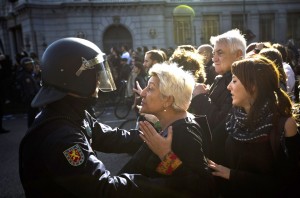
 Follow
Follow